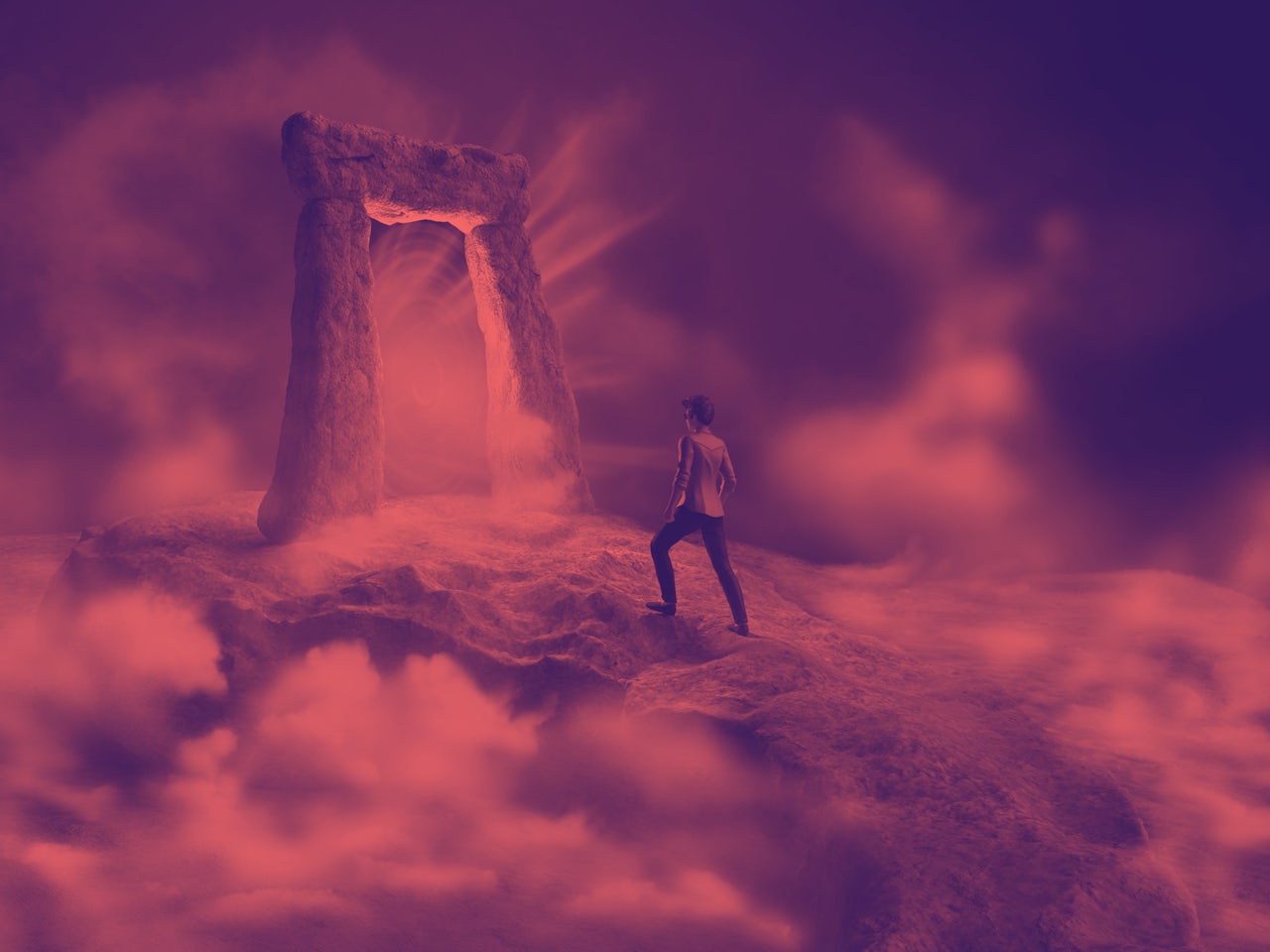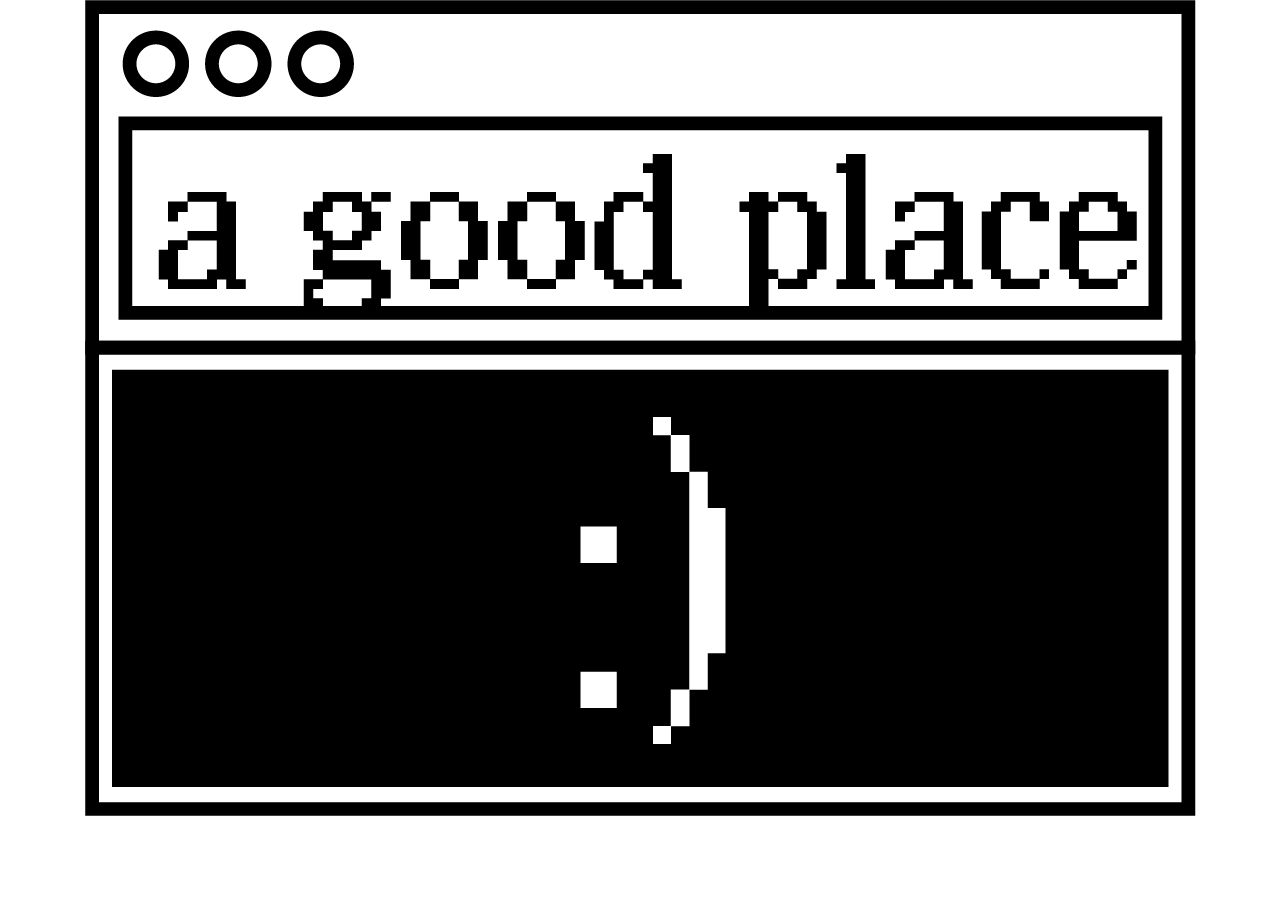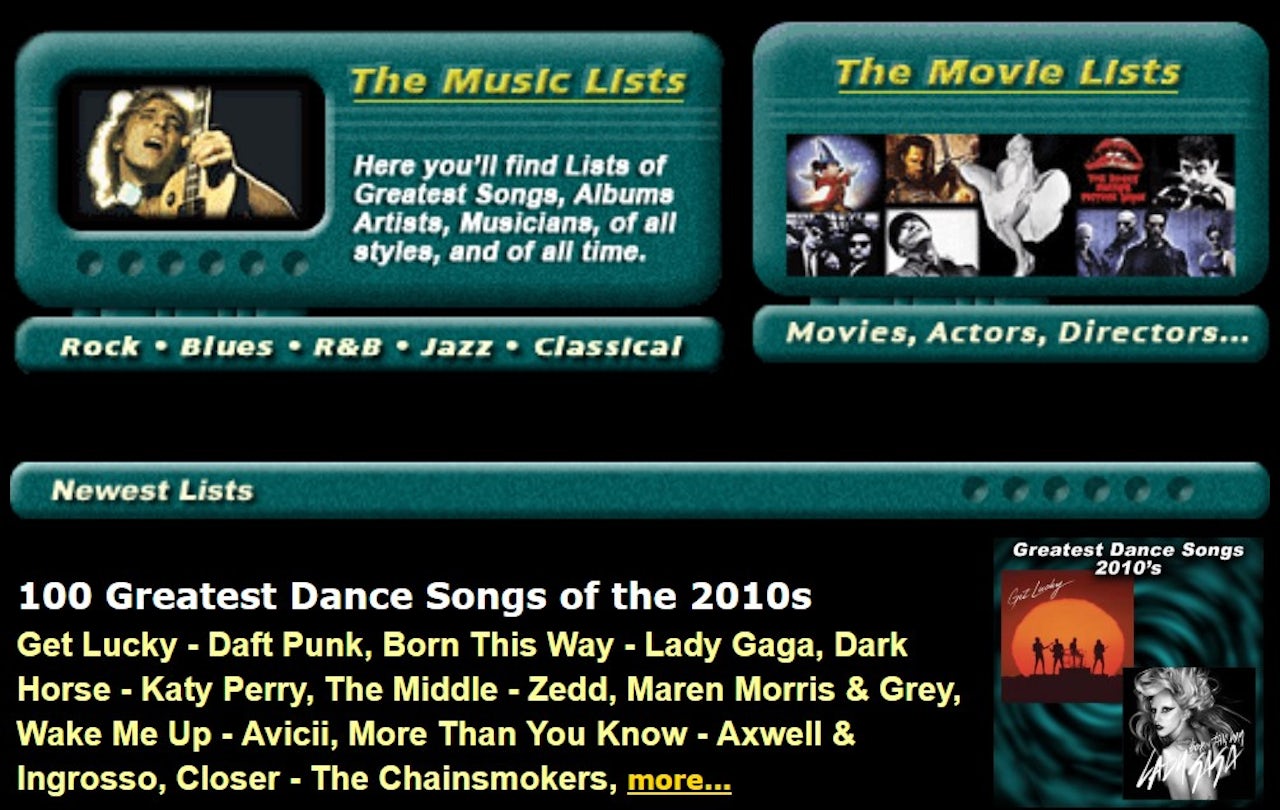but this place is just right.
Music nerds of all stripes love to tell you how much they hate “Best Of” lists. You know which lists I’m talking about, the ones that tastemaking publications put out staking claim over the greatest songs/albums/etc. in a particular genre or in a particular timeframe. The true music nerds will tell you it’s all out of order, or that the criteria for populating the list as a whole is completely off, and that they themselves would have made the list completely differently, because actually the love lists. It’s just that hating lists is the best part of loving them. Where else can you take the product of all that time you spent sitting around, binging music biographies, burrowing through blogs, building a rolodex of tabs with which broaden your expertly cultivated yet open-minded taste? Deep down, there is a part of even the most ranking-averse critics and listeners that knows that lists are No. 1.
As a pretentious middle schooler first getting into music during the early-to-mid-2000s, my go-to resource was DigitalDreamDoor.com, a website that is essentially a giant list of lists. Boasting an admirably DIY web design based around a turquoise, yellow, red, and black color scheme, DigitalDreamDoor took every “100 Greatest” list that you could read (and hate on) in magazines like Rolling Stone and attempted to do what the early web promised it would: take a process that used to be handed down to music (and movie) nerds from on high, and make it both more democratic, and more definitive.
Lists could get as general as “100 Greatest Rock Albums” or as specific as “100 Greatest Uptempo Doo-Wop Songs,” all assembled by a volunteer editor or two with copious feedback from users. My favorite, though, were lists like “100 Greatest Guitar Solos,” one of the site’s earliest and most popular draws, which introduced me to everything from “Hotel California,” to Randy Rhoads’ still-blistering stuff on Ozzy Osbourne’s “Crazy Train,” to guitar-shred virtuosos like Joe Satriani, Yngwie Malmsteen, and Buckethead. Even if the overindulgent noodling of those last three guitarists unlistenable for any adult who does not currently operate a guitar-focused YouTube channel, you have to admit that their music would seem like the absolute shit to the kind of 13-year old who is reading the “100 Greatest Guitar Solos” list on DigitalDreamDoor.com.
The editors tasked with assembling the lists worked off input from the DDD community, which hung out on the site’s comment threads and message boards. Yes, things sometimes degenerated into the flame wars that, if you frequented any forums in the mid-2000s, you probably remember all too well. Just as often, though, these threads yielded the delightful spectacle of members politely negotiating about where to slot in Jay Z and Big L in relation to Smokey Robinson and Leonard Cohen on the upcoming 200 Greatest Lyricists list. At its best, the DDD boards offered the opportunity to watch a bunch of well-meaning music dads try their best to make sure everybody’s voice was included.
A few months ago, I discovered that DigitalDreamDoor.com not only still exists, but looks exactly the same as it did 15 years ago. And, aside from the addition of a few unobtrusive Twitter, Facebook and Spotify buttons and a couple of ad banners, it has continued on, undeterred by the web-reshaping maelstroms that mobile browsing, social media, the hot take economy, algorithmic filtering, and whatever else has made today’s web so prone to descriptors like “hellscape” hath brought upon us.
I think it’s safe to say that today’s web experience is, for most people, different than the web experience that led me to DDD 14 years ago. If you’re anything like me, you start a browsing session on a social network, which flings you through a series of individual posts or articles, each from a different, unrelated site. If you do frequent any actual websites, they’re almost always owned by some larger corporation, and packed with similar posts about the same handful of breaking news items. At its worst, it’s a content whirlwind; overwhelming and under-informative all at once.
But browsing DigitalDreamDoor.com today is not like this. Unlike today’s mandatory Like and Share buttons and autoplay videos and links to three related articles and ads ready to jump you at the bottom of every page, there’s no pressure here, and aside from the occasional Spotify playlist, nothing that nudges you to do anything besides wander the pages however you see fit. For me it’s like wandering through a cozy old museum, still trundling along, admirably shabby in comparison to all the gleaming storefronts. Depending on how I’m feeling, I could open another tab to find the music, wonder which hip-hop album should be knocked from [the top five] so that Illmatic can ascend to its rightful place there, or just let my eyes glaze over the hundreds of little green band names and song titles, letting them marinate in my brain somewhere for potential future listening.
It’s not that you can’t get lost in the thicket of the web anymore, far from it. It’s just that everything is slickly pruned to guide you in and out of Twitter and Facebook. For me, browsing DigitalDreamDoor dredges up the sense memories of when the web still seemed like a portal to endless potential discovery — before “discovery” became just another buzzword used by every startup with an algorithm to hawk.
DigitalDreamDoor is still making lists (“100 Greatest Cover Songs and Remakes of the 2000s” dropped just a few months ago; it’s hard to argue with Johnny Cash’s version of “Hurt” at number one, but it’s mind-boggling that Smash Mouth’s Shrek-soundtracking cover of The Monkees“I’m A Believer” is a full five spots above the White Stripes’ take on “Jolene”), and they’re still mercifully above the frenzy to keep up that dominates the feeling of being online. With the quickening consolidation of the internet experience into the hands of a few companies and platforms, I don’t know if sites like DDD are a blueprint we should try to return to, or if they’re simply a relic of days gone by. But if nothing else, it still offers a soothing way to nerd out. And what better use of the internet is there than that?


